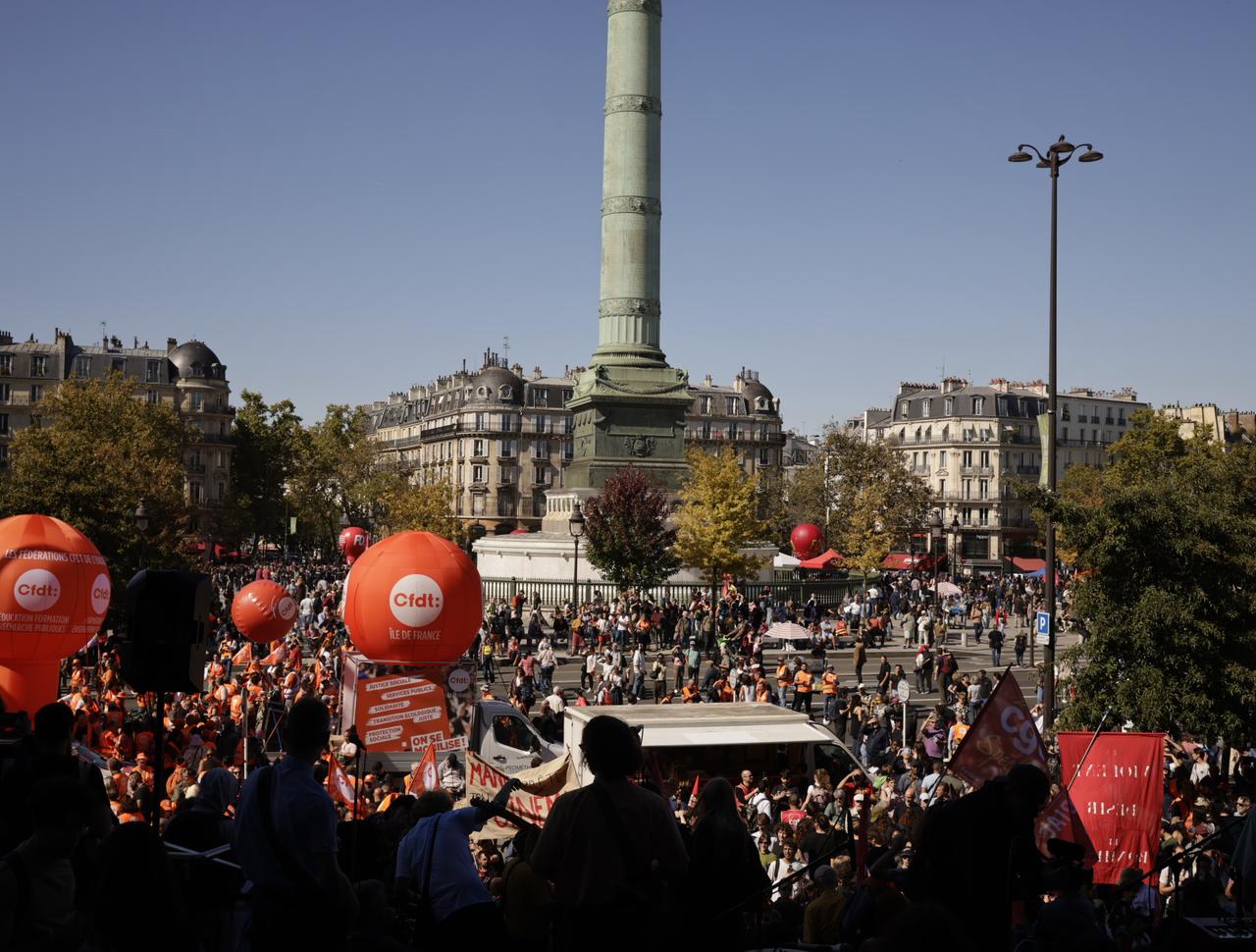France Witnesses Massive Protests as Labor Unions Strike Against Austerity Measures
Hundreds of thousands of people across France took to the streets on September 18, 2025, as labor unions led massive strikes and protests against government austerity measures, disrupting transport, education, and public services.

France was gripped by widespread strikes and protests on September 18, 2025, as labor unions mobilized against President Emmanuel Macron's proposed austerity measures, including spending cuts and pension reforms. The demonstrations, called by an inter-union coalition, marked the largest such mobilization since the 2023 pension reform protests. According to the Interior Ministry, over 500,000 people participated nationwide, while the CGT union claimed the number exceeded one million. Major cities such as Paris, Marseille, Lyon, Bordeaux, and Toulouse saw significant turnouts, with both peaceful marches and isolated clashes with police.
Nationwide Disruption and Union Demands
The strikes severely disrupted daily life across France. Teachers, transport workers, healthcare staff, and students joined the action, leading to the closure of schools, cancellation of train services, and blockades at key infrastructure points. In Paris, metro and regional train services were heavily curtailed, and demonstrators blocked roads in several cities. Unions demanded higher taxes on the wealthy, protection of public services, and a reversal of recent pension reforms that raised the retirement age. Protesters carried signs calling for tax justice and a redistribution of wealth, reflecting widespread frustration with what many see as growing inequality and government policies favoring the affluent.
Political Response and Public Sentiment
Prime Minister Sébastien Lecornu, newly appointed on September 9, faced his second major protest in a week. He pledged to engage in dialogue with union leaders but must navigate a fractured Parliament and mounting public anger. The government deployed over 80,000 police officers and gendarmes nationwide, resulting in more than 180 arrests, including 31 in Paris. While most demonstrations remained peaceful, some incidents of violence and property damage were reported, particularly in the capital. The protests have become a critical test for Macron's administration, which is under pressure from both the street and financial markets concerned about France's soaring deficit.
Broader Implications and Future Actions
Commentators across Europe noted that France's public debt now exceeds 3.3 trillion euros, raising concerns about the country's economic stability and its impact on the broader Eurozone. The recurring nature of mass protests in France highlights deep societal divisions and a persistent culture of resistance to government reforms. Unions have issued an ultimatum, threatening further strikes if their demands are not met, particularly in sectors like transport, education, and healthcare. As the government weighs its next steps, the outcome of this confrontation will likely shape France's political and economic trajectory in the months ahead.